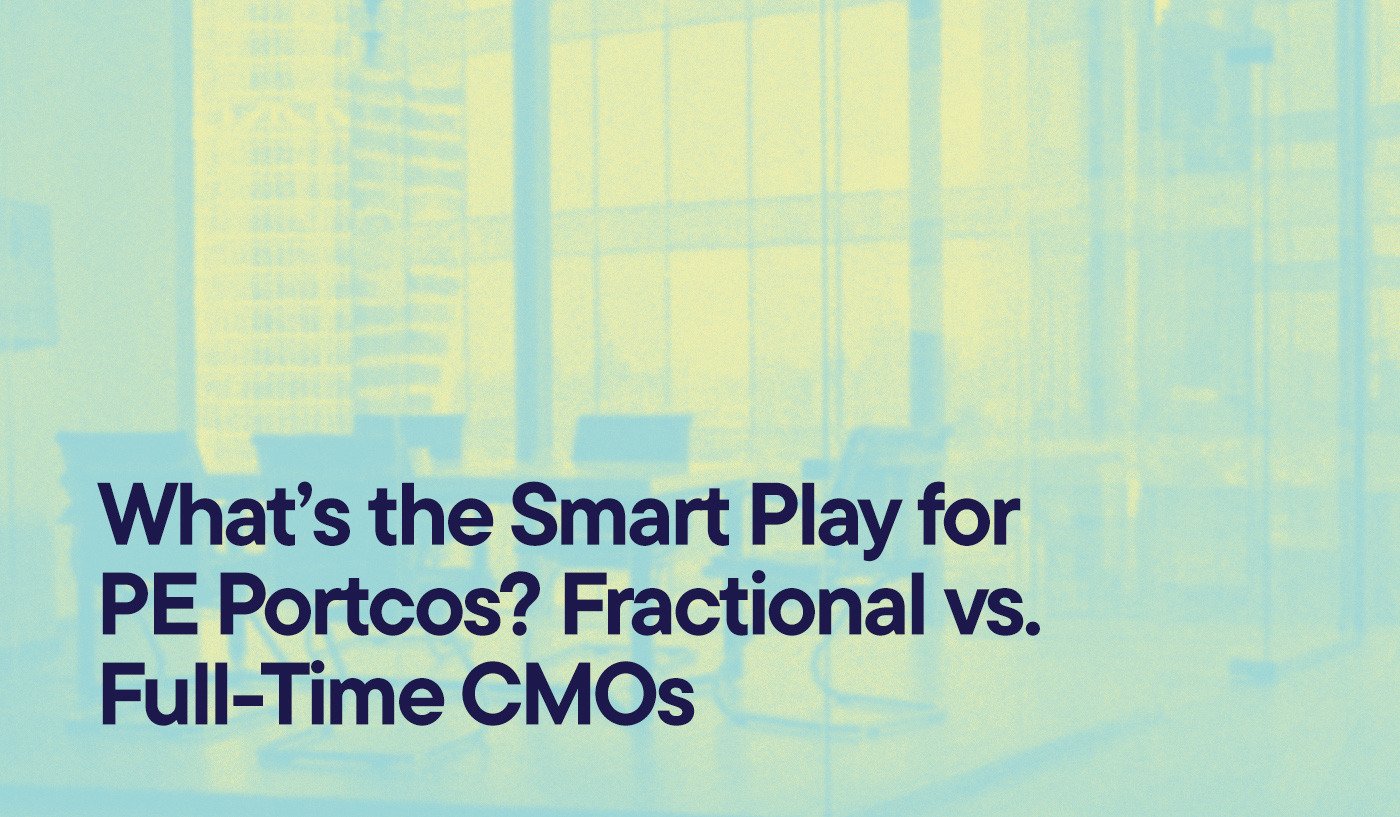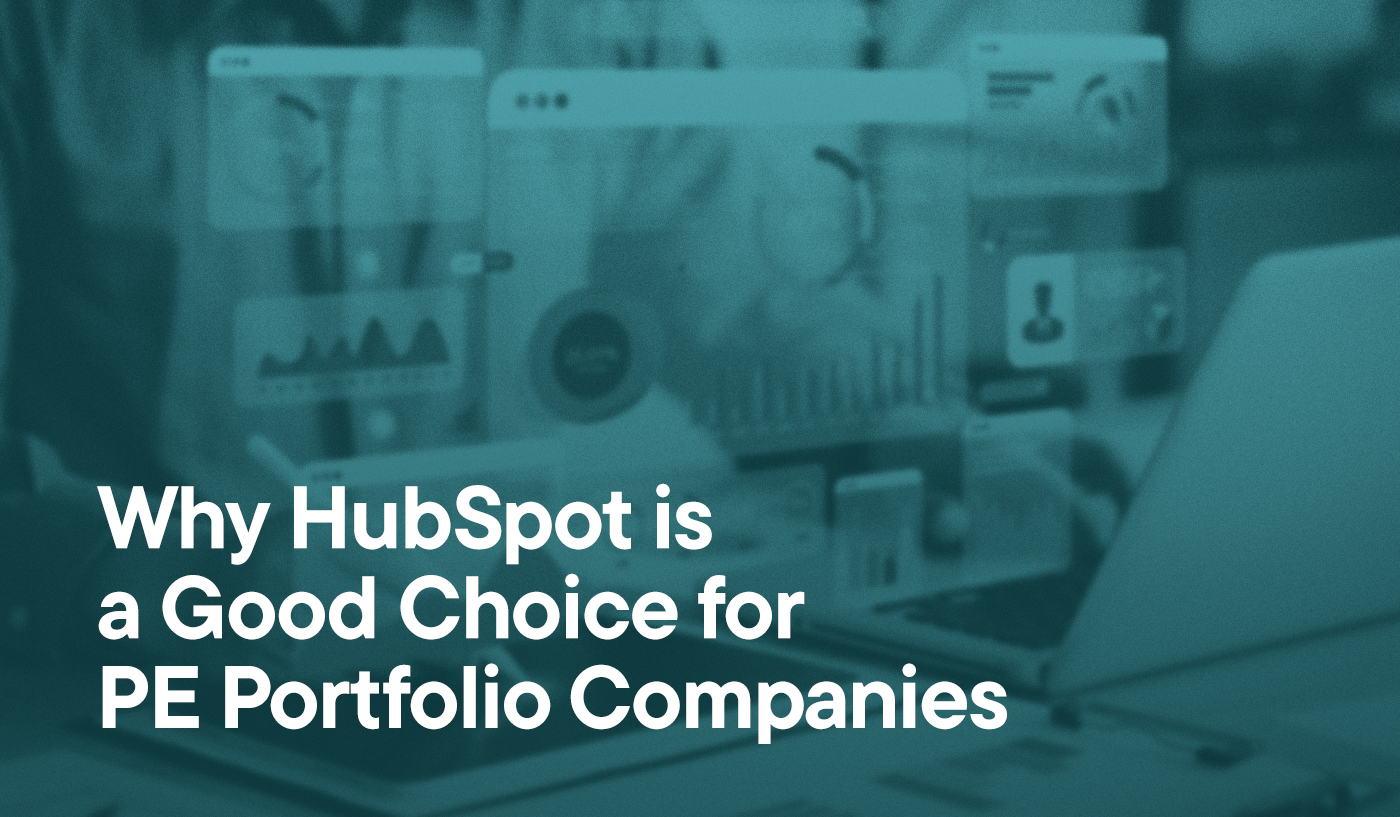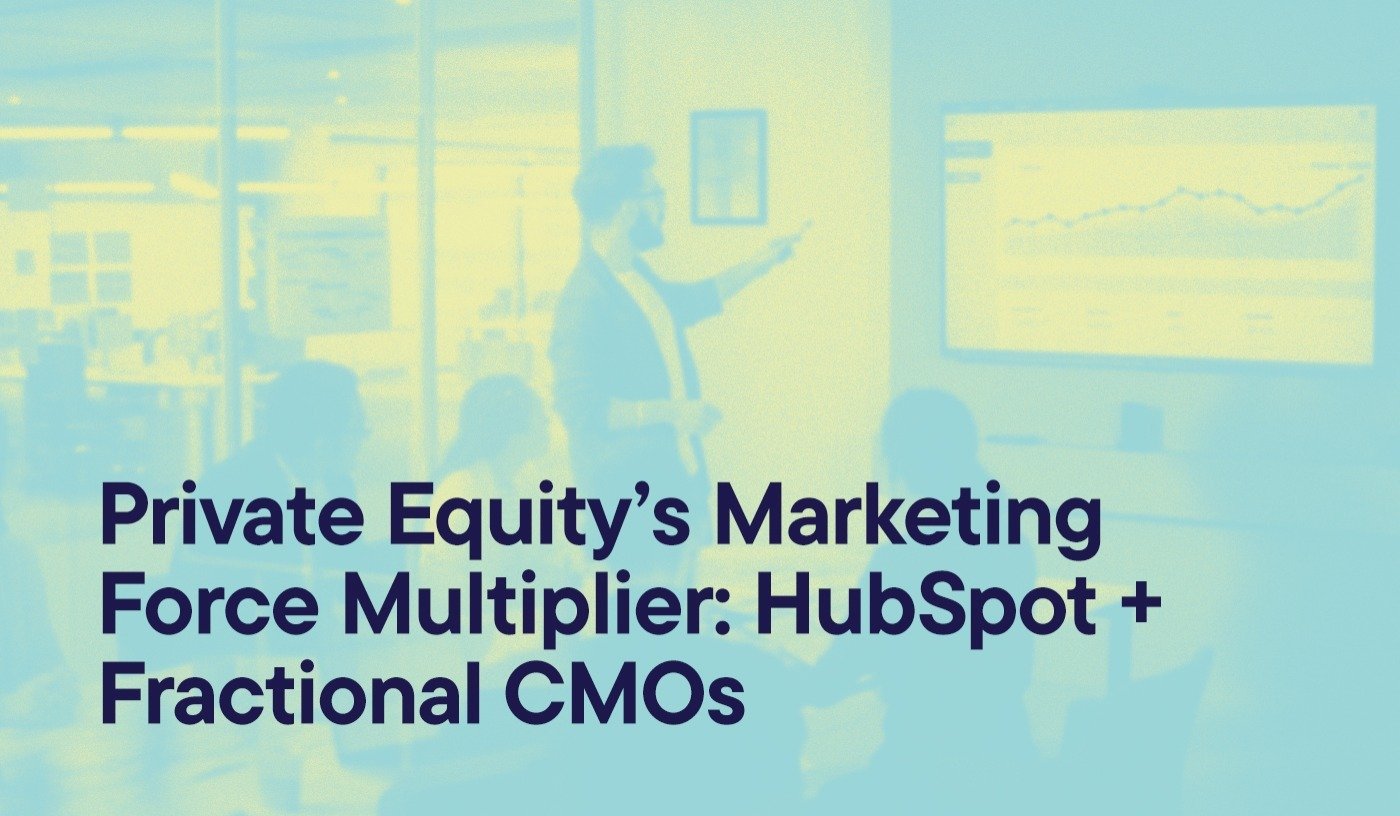Private equity (PE) firms operate with urgency and precision—every decision, especially around leadership, must drive measurable results.
As marketing becomes more critical to value creation, firms are weighing the advantages of hiring a full-time Chief Marketing Officer (CMO) versus engaging a fractional CMO. Each path has cost, speed, and strategic tradeoffs.
This post explores many of the differences between the two models to help determine a best fit for your investment strategy and portfolio companies’ return timelines.
Key Takeaways
-
Cost-Efficiency with Comparable Expertise: Fractional CMOs typically cost 25–50% less than full-time hires when factoring in salary, bonuses, and benefits—delivering senior-level marketing leadership at a lower cost.
-
Better Fit for PE Timelines: With average CMO tenure at just 4.3 years, fractional CMOs better align with PE firms’ accelerated timelines and stage-specific needs—offering flexibility without long-term commitments.
-
Lower Risk, High Upside: Fractional CMOs reduce hiring risk while preserving growth potential, giving firms the agility to adapt quickly as market conditions or portfolio needs evolve.
-
Purpose-Built for PE: Hypha HubSpot Development delivers fractional CMO support tailored for private equity, blending HubSpot expertise with hands-on execution to drive growth across multiple portfolio companies—fully aligned with investment goals.
Full-Time v. Fractional: What’s the Difference?
Full-Time CMO
A full-time Chief Marketing Officer is a permanent executive responsible for leading the company’s entire marketing strategy—from brand positioning and demand generation to product marketing and customer insights.
In PE-backed companies, they’re expected to align closely with revenue goals and drive sustained growth. Compensation typically includes a high base salary, bonuses, and often equity, reflecting the long-term commitment and accountability expected from the role.
Fractional CMO
A fractional CMO brings the same strategic expertise but on a part-time or contract basis.
Commonly engaged during key growth or transition phases—post-acquisition, pre-scale, or pre-exit—fractional CMOs focus on high-impact initiatives like go-to-market strategy, team building, and performance optimization.
Working with multiple clients, they operate on a flexible schedule (from a few hours a week to a few days a month), giving PE firms access to senior marketing leadership without the overhead of a full-time hire.
Compensation Differences
On average, a fractional CMO costs 25% to 50% less than a full-time CMO when factoring in salary, bonuses, and benefits—often making it a cost-efficient option (on a dollar-for-dollar basis) for shorter, high-impact needs.
- High base salary ($200K–$350K+)
- Performance bonuses (20–40% of salary)
- Benefits package (20–30% of salary)
- Equity compensation
- Office space & resources
- 25–50% lower total cost
- Part-time fee structure (hourly or retainer)
- No benefits or equity costs
- No overhead expenses
- Pay only for time/expertise needed
- Long-term investment
- Typically requires 2+ year commitment
- Full benefits & severance packages
- Full integration into executive team
- Flexible engagement terms
- Month-to-month or project-based options
- Easily scalable up or down
- No long-term obligations
- Average CMO tenure: 4.3 years
- Often exceeds typical PE investment horizon
- Significant ramp-up period
- Potential misalignment with PE timelines
- Precisely aligned with PE timelines
- Engagement matched to specific phase needs
- Quick ramp-up period
- Can transition with portfolio needs
- Extended hiring process (3–6 months)
- Longer onboarding period
- Learning curve for company-specific needs
- Full strategic implementation
- Rapid deployment (days to weeks)
- Faster implementation of strategies
- Experienced in quick transitions
- Immediate focus on high-impact initiatives
- High financial commitment
- Significant cost if misaligned
- Challenging to pivot if needs change
- Complex unwinding process
- Lower financial risk
- Easier to adjust engagement scope
- Simplified termination if needed
- Greater flexibility as needs evolve
- Deep, company-specific knowledge
- Single-industry focus
- Full-time dedication to one business
- Internal team leadership
- Cross-industry expertise
- Multi-company perspective
- Current knowledge of latest trends
- Experience with multiple PE scenarios
- Stable, predictable growth phases
- Long-term brand building initiatives
- Companies with extensive marketing teams
- Post-PE exit scenarios
- Post-acquisition integration
- Pre-exit value enhancement
- Turnaround situations
- Rapid scale or transformation phases
- Portfolio companies with similar needs
Evolving Marketing Trends Demand Adaptive Leadership
Unsurprisingly, modern marketing is evolving at a pace few internal teams can keep up with.
From influencer campaigns and AI-driven content to new privacy regulations and shifts in digital attribution, what worked 12 months ago may be obsolete today.
Such a rate of change favors leaders who are constantly immersed in the front lines of marketing innovation. Indeed, many fractional CMOs work across multiple companies and industries, giving them a broader, real-time view of what’s working in today’s digital landscape—and what isn’t. Their playbooks are regularly updated rather than recycled.
From influencer campaigns and AI-driven content to new privacy regulations and shifts in digital attribution, what worked 12 months ago may be obsolete today.
For PE-backed companies, this means marketing leadership that’s not only strategic but also plugged into current platforms, tools, and tactics.
In high-stakes, high-speed environments, having someone already fluent in the next wave of growth levers isn’t just helpful—it’s essential.
Tenure vs. Traction
While the CMO role is traditionally viewed as a long-term strategic position, the data suggests otherwise.
According to Spencer Stuart’s 2025 CMO Tenure Study, the average tenure for Fortune 500 CMOs is just 4.3 years, trailing the broader C-suite average of 4.9 years.
This reflects a broader shift in how marketing leadership is utilized: it’s more performance-driven, sprint-focused, and outcome-oriented.
As expectations for short-term results grow, turnover rises—often before a full-time CMO can deliver long-term impact.
For PE firms, this creates a clear cost-benefit consideration: Why invest heavily in a permanent executive who may stay for years when the business may only need six to 18 months of high-intensity strategic marketing leadership?
Fractional CMOs align more naturally with the accelerated pace, volatility, and stage-specific needs of PE-backed companies. They provide senior-level expertise without the long-term financial commitment and can be dialed up or down based on performance and growth milestones.
When to Choose Which
Full-Time CMO
Best for:
- Post-PE exit companies focused on long-term brand building
- Portfolio companies with large in-house marketing teams
- Stable, slower-growth businesses prioritizing continuity
Fractional CMO
Ideal for:
- Post-acquisition integration or go-to-market pivots
- Pre-exit value enhancement or turnaround scenarios
- Portcos needing short-term leadership without long-term cost
Performance & Speed to Impact
Speed to impact is another lens through which to view the cost-benefit equation of marketing leadership.
While tenure highlights the mismatch between long-term hires and short-term needs, speed focuses on how quickly a leader can deliver results. In both cases, the takeaway is the same: value is increasingly measured in time, not just outcomes.
This is why many companies—as noted in The Wall Street Journal—are prioritizing CMOs with performance-marketing expertise. These leaders bring a test-and-optimize mindset, focusing on fast execution, measurable results, and direct alignment to revenue.
From this perspective, fractional CMOs present a compelling fit. A fractional CMO position is structured for speed and flexibility, and can generate results without the lag time or long-term cost of a full-time hire—an especially strong match for PE-backed companies working against accelerated growth timelines.
Accelerate Portfolio Value Creation
Looking for Marketing Leadership Without the Overhead?
Drive Growth With Our PE Portfolio Solutions arrow_forwardRisk vs. Reward
Every leadership decision carries inherent risk, especially in private equity, where the cost of delay or misalignment compounds quickly.
A full-time CMO represents a significant commitment: high salary, long ramp-up, equity, and often, an expectation of multi-year tenure. If the hire underdelivers or the company’s priorities shift, unwinding that decision can be costly, both financially and strategically.
A fractional CMO, by contrast, lowers the downside while preserving upside potential. With less overhead, shorter ramp times, and performance-driven focus, fractional engagements offer firms more flexibility to respond to shifting market conditions or evolving portfolio needs. If traction is strong, the relationship can scale; if not, adjustments can be made with minimal friction.
For PE firms operating on compressed timelines and tight return targets, mitigating leadership risk while maximizing impact is ideal. In many cases, the fractional model strikes that balance, enabling firms to move fast, stay lean, and maintain optionality as growth strategies evolve.
Putting It All Together
Marketing leadership today requires more than experience—it demands adaptability, speed, and alignment with business objectives from day one.
For private equity firms, that means making leadership decisions based not just on title but on fit: for the stage of the company, the pace of growth, and goals一both long and short term.
Full-time CMOs can offer value in more stable, long-range scenarios.
Still, for many growth-stage or transitioning portfolio companies, fractional CMOs deliver strategic expertise with greater flexibility, faster time-to-impact, and lower risk. In a cost-benefit analysis, those attributes align well with the realities of PE timelines and return expectations.
As marketing trends evolve and pressure to perform increases, the most strategic choice may not be the most traditional. The right model is the one that accelerates results without overcommitting resources—and increasingly, that model is fractional.
How Hypha Delivers Fractional CMO Excellence for PE Firms
Hypha provides specialized fractional CMO services tailored to private equity demands, delivering immediate impact without full-time executive costs.
We offer strategic marketing leadership that accelerates portfolio value creation during critical phases: post-acquisition, scaling, pre-exit positioning, and turnarounds.
Our approach combines HubSpot expertise with hands-on execution capabilities. We implement growth marketing strategies aligned with your investment thesis, establish scalable marketing infrastructure, and provide clear performance analytics that demonstrate ROI.
For PE firms managing multiple portfolio companies, Hypha’s flexible model delivers strategic expertise precisely when and where needed, optimizing both resources and outcomes.
Ready to accelerate portfolio growth? Contact us today to discuss how our fractional CMO services can help your portfolio companies achieve enhanced valuations and maximize returns.




